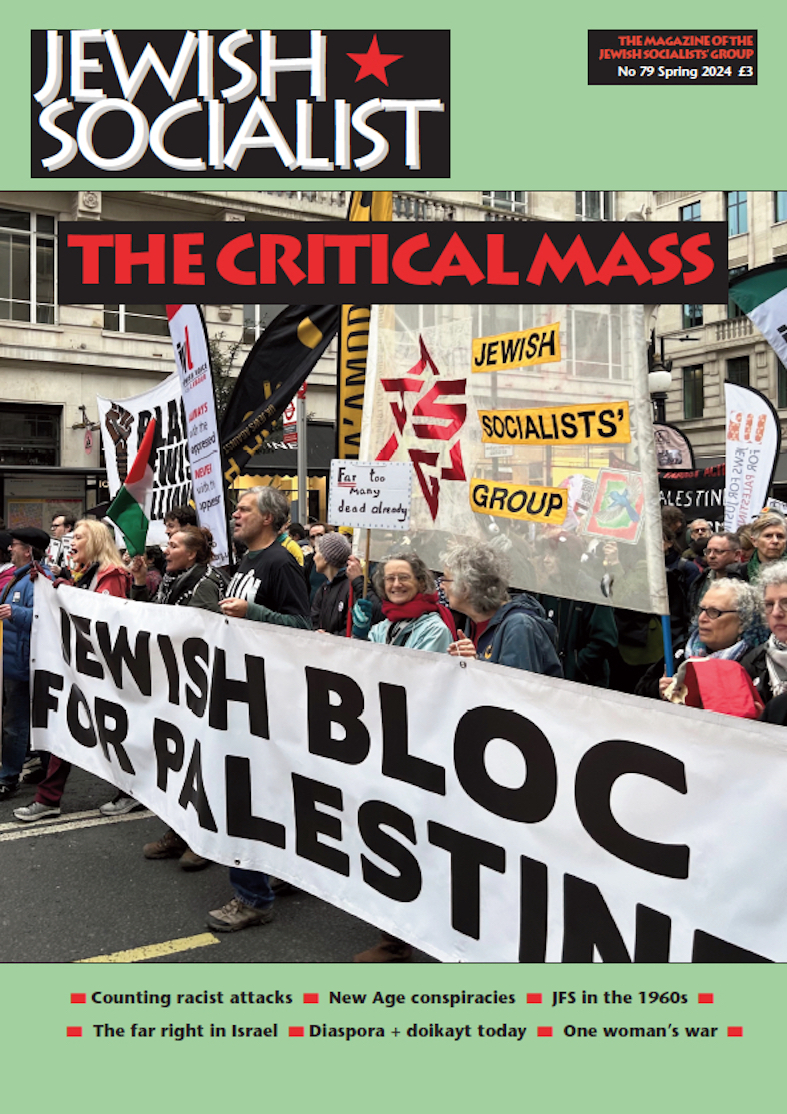150 years on Rudolf’s ideas and legacy still rock!
David Rosenberg celebrates a rebel with a righteous cause

Today is the 150th anniversary of the birth of an extraordinary individual who played a very significant part in London’s radical Jewish history. And he wasn’t even Jewish. Rudolf Rocker, born in Mainz, Germany, was raised in a Catholic orphanage there. In 1895 he came to London as a political exile and fell in love with a Ukrainian Jewish sweatshop worker called Milly Witkop whom he met in Yiddish anarchist circles here. Three years later he began a stint as the longest serving editor of Arbayter Fraynd (Workers Friend), the weekly radical Yiddish newspaper that gave sustenance and inspiration to the struggles of the Yiddish-speaking, east-European-born proletariat in London‘s East End.
Under his editorship the newspaper acted as a mirror for workers who could see the bitterness of their lives but also their hopes for radical change reflected in its pages. The paper inspired them to struggle collectively for better conditions where they lived and worked, and also for a better world.
Rudolf had his first brush with authority in that orphanage in Mainz, where he resented their strict rules. Upon leaving there he trained as a bookbinder and joined the youth section of the German Social Democratic Party. The party’s elders felt its youth section, Die Jungen, were becoming too radical. Several of them, including Rudolf, were expelled. Afterwards his politics shifted from socialism towards anarchism.
When close comrades were arrested for their activism, Rudolf went into voluntary exile and emerged in Paris, where he shared a flat and bookbinding tools with a fellow worker, a Russian Jew, Shloyme Rappaport. Rappaport later returned to Russia became a famous Yiddish poet and playwright, using the pseudonym Anski. He wrote the play, The Dybbuk, about a wandering evil spirit.
Rudolf, a different kind of wandering spirit, reached London on a foggy day in January 1895. He described seeing “a world of ghosts” and “a thick clammy yellow mist over everything”.
He and his partner, Milly, moved temporarily to Liverpool, where Rocker began mastering Yiddish (with its Hebrew alphabet) and worked on a radical Yiddish newspaper there. They settled back in the East End, living in Dunstan Houses (which still stands today) – a block where several anarchists were living.
Through Milly, he knew at first-hand about the long hours for low pay endured by the Yiddish-speaking immigrant clothing workers, shoemakers and cabinetmakers, and he dedicated himself to their liberation. He helped them form unions and played a key role in successful strikes, especially the 1912 tailors’ strike.
Before then, In 1906, together with other Yiddish-speaking anarchists – he had established the Jubilee Club, a co-operatively run international Workers Education club, where workers of many backgrounds socialised, agitated and benefited from adult education classes.
Before the Jubilee Club was established, Rocker frequently lectured on Friday nights in a back room at the Sugar Loaf pub in Hanbury Street off Brick Lane. One Jewish anarchist, Milly Sabel, described Rocker’s lectures, saying that he “opened up … the vision of a new society – no persecution, no hunger, only warmth and generosity.”
Late in life, when he looked back on his years in the East End, one particular incident stood out: “…as I was walking along a narrow Whitechapel street, an old Jew with a long white beard stopped me outside his house, and said: “May God bless you! You helped my children in their need. You are not a Jew, but you are a man!” This old man lived in a world completely different from mine. But the memory of the gratitude that shone in those eyes has remained with me all these years.”
Rudolf remained in the East End, editing the weekly Arbayter Fraynd, and a monthly anarchist theoretical journal, Germinal, until 1914 when war broke out. A few months later, German males were rounded up and interned as “enemy aliens”. The authorities didn’t ask him which side he supported. He would have told them neither. He was a pacifist. After internment he was deported, but Rudolf, Milly and their son, Fermin, were reunited in Germany after the war. When Hitler came to power in 1933, they were well known political activists, and they managed to get out and reach America, where they lived the rest of their days in an anarchist commune in upper New York State.
But 150 years on Rocker still has much to teach us – especially in his thoughts on freedom. He wrote: “Freedom is never attained; it must always be striven for … Each generation must face its own problems which cannot be forestalled or provided for in advance. The worst tyranny is that of ideas which have been handed down to us, allowing no development in ourselves.”
Posted: 25 March 2023
Events
- JOIN THE JEWISH BLOC ON THE GAZA PROTEST
27 April 2024, London
March with the Jewish Bloc for Palestine at this week's national demonstration for Gaza.
Jewish Socialist magazine
JS79 out now:
Counting racist attacks
New Age conspiracies
The far right in Israel
Diaspora + doikayt today

